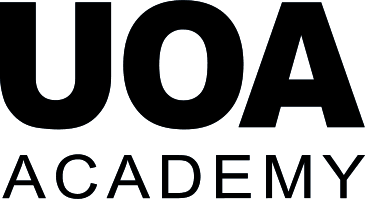Objectives
The “Managing Multiple Tasks and Work Priorities” course is designed to equip participants with effective strategies and techniques for managing their workload, prioritizing tasks, and maximizing productivity in a dynamic and fast-paced work environment. Through practical exercises, discussions, and real-life scenarios, participants will learn how to effectively handle multiple responsibilities, make informed decisions on task prioritization, and enhance their time management skills.
Target Audience
The “Managing Multiple Tasks and Work Priorities” course is designed for professionals at all levels who are faced with managing multiple tasks, responsibilities, and competing priorities in their work. It is suitable for individuals from various industries and roles, including managers, supervisors, project leads, team members, and anyone seeking to enhance their task management and work prioritization skills.
Learning Outcomes
● Assess and analyze their workload to effectively manage multiple tasks and responsibilities.
● Apply proven time management techniques to maximize productivity and minimize time wastage.
● Prioritize tasks based on importance, urgency, and organizational goals.
● Implement strategies to minimize interruptions and distractions and maintain focus.
Course Outlines:
Day 1:
Module 1: Introduction to Managing Multiple Tasks and Work Priorities
● Understanding the challenges and impact of managing multiple tasks.
● Identifying common time management pitfalls and how they affect productivity.
● Setting goals for improving task management and work prioritization.
● Analyzing Workload and Task Prioritization
Module 2: Assessing the current workload and identifying tasks and responsibilities.
● Applying prioritization techniques to categorize tasks based on importance and urgency.
● Identifying key factors and criteria for effective task prioritization.
● Time Management Techniques
Module 3: Exploring proven time management strategies and techniques.
● Setting realistic deadlines and creating a time management plan.
● Overcoming procrastination and managing distractions.
● Managing Interruptions and Distractions
Module 4: Identifying common interruptions and distractions in the workplace.
● Implementing strategies to minimize and effectively handle interruptions.
● Developing techniques to regain focus and maintain productivity.
● Delegating and Outsourcing Tasks
Module 5: Recognizing tasks that can be delegated or outsourced..
● Understanding the criteria for determining tasks that are suitable for delegation or outsourcing.
● Identifying tasks that are repetitive, time-consuming, or outside your core competency.
● Evaluating the potential benefits and risks associated with delegating or outsourcing specific tasks.
Day 2:
Module 6: Effective Task and Project Planning
● Breaking down projects into manageable tasks and creating action plans.
● Utilizing task management tools and software for planning and tracking progress.
● Incorporating flexibility and adaptability in task and project planning.
Module 7: Prioritization Decision-Making
● Making informed decisions on task prioritization based on organizational goals and deadlines.
● Applying techniques such as the Eisenhower Matrix or ABC Analysis.
● Evaluating trade-offs and considering the impact of task prioritization decisions.
Module 8: Managing Work Overload and Stress
● Recognizing signs of work overload and stress.
● Implementing stress management techniques and self-care practices.
● Seeking support and resources to manage work-related stress effectively.
Module 9: Effective Communication and Collaboration
● Communicating task priorities and deadlines clearly to stakeholders.
● Collaborating with team members and stakeholders to manage interdependencies.
● Resolving conflicts and managing competing priorities effectively.
Module 10: Flexibility and Adaptability
● Developing a flexible mindset to adapt to changing priorities and unforeseen circumstances.
● Embracing agile approaches and adjusting plans as needed.
● Managing conflicting demands and reprioritizing tasks when necessary.
Module 11: Personal Productivity and Continuous Improvement
● Developing personal productivity habits and routines.
● Reviewing and reflecting on task management practices for continuous improvement.
● Leveraging technology and tools for enhanced productivity.
Module 12: Conclusion and Action Planning
● Summarizing key takeaways from the course.
● Creating an action plan for implementing task management and work prioritization strategies.
● Setting goals and accountability measures for ongoing improvement.



